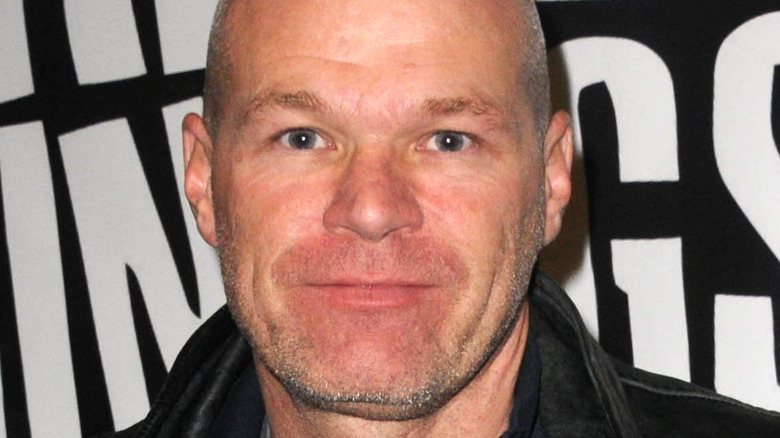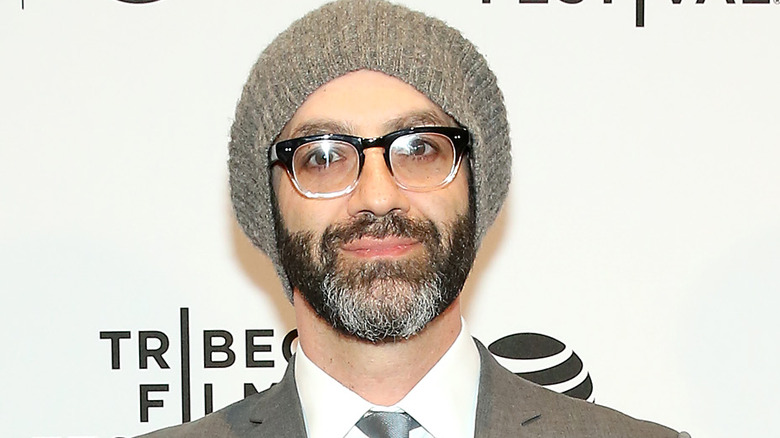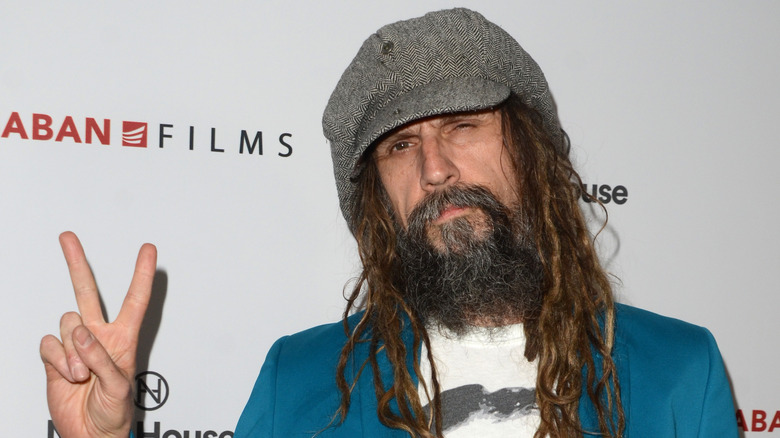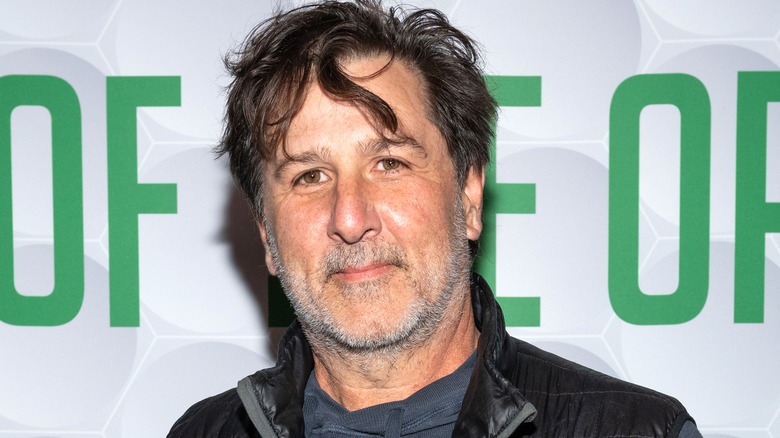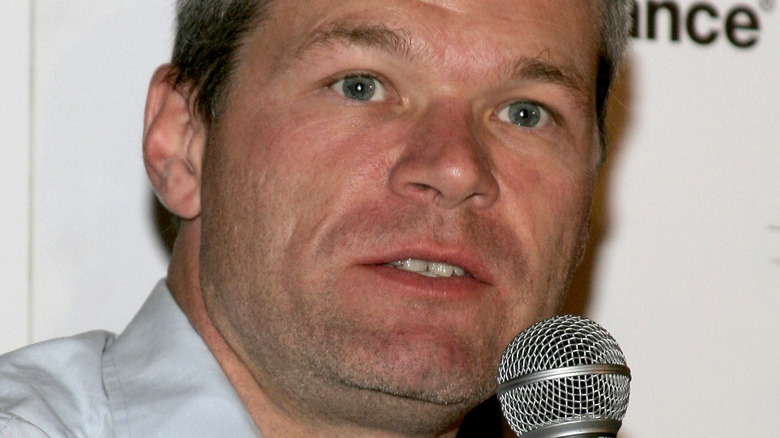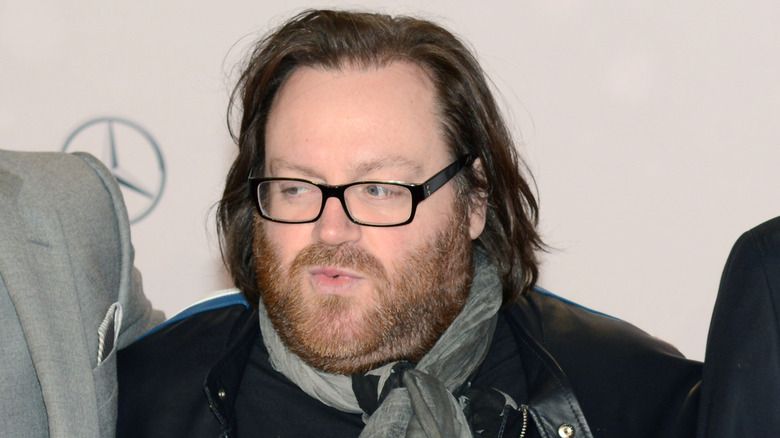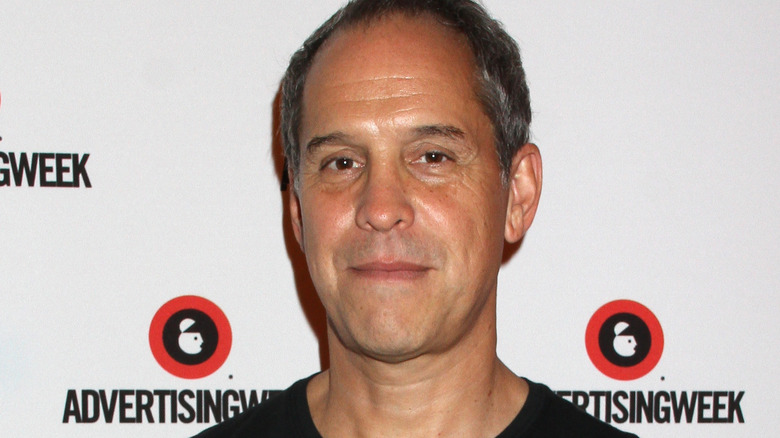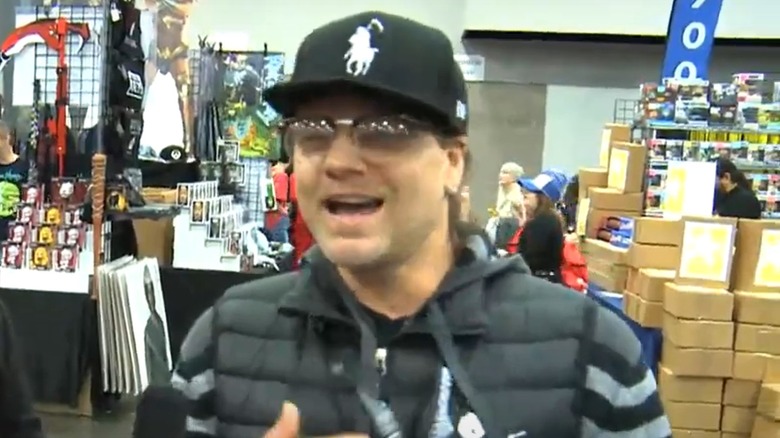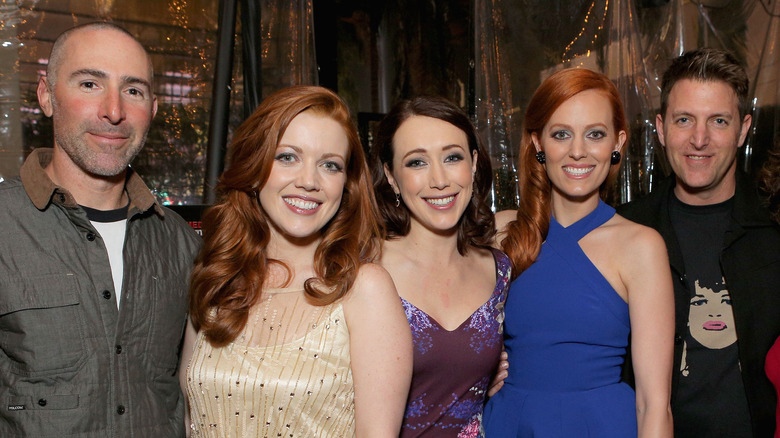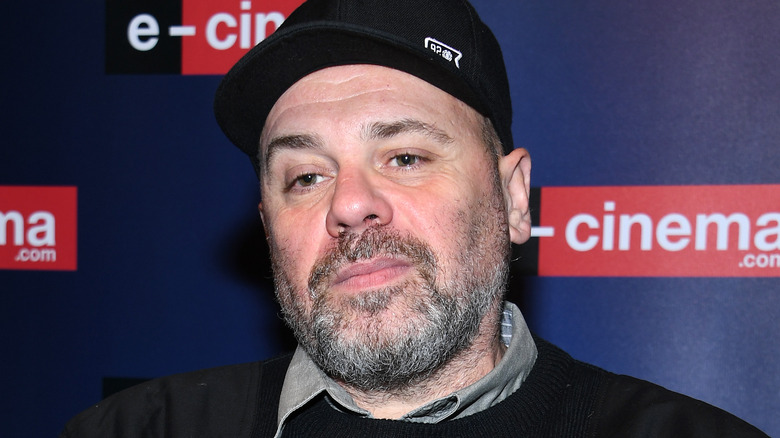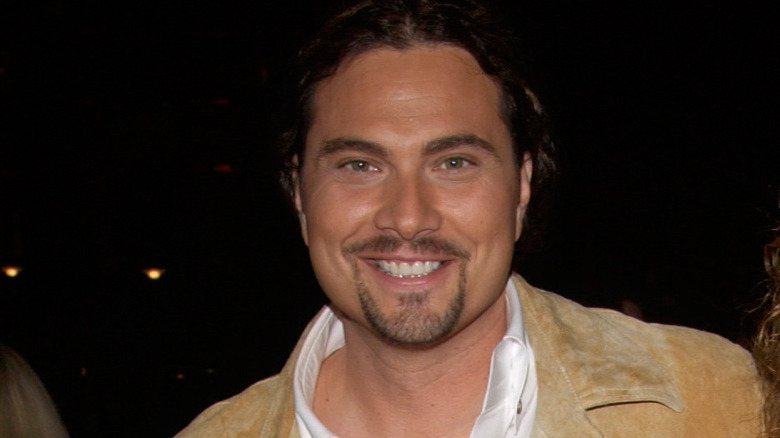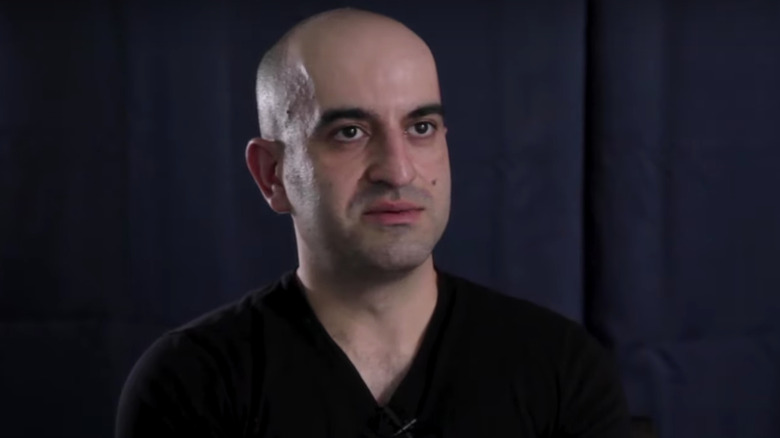13 Filmmakers Whose Entire Filmographies Are Rotten
For many directors, a single critical failure of a film can be disastrous for their career. Other directors manage to repeatedly churn out critical duds as their bread and butter. After all, financial success counts for a whole lot more than critical success in the film industry. Money and quality don't always go hand-in-hand, and sometimes the critical reaction to a film can be a world apart from the general audience reaction to it. From low-budget, straight-to-video horror and action schlock to big-budget comedies that aim for the lowest of the low-brow, these filmmakers never stood — and probably never will stand — a chance with Rotten Tomatoes critics.
Here is a rogues gallery of filmmakers who have managed to get numerous films made but have never managed to impress the critics over at Rotten Tomatoes even once. They say a broken clock is right twice a day, but these filmmakers prove that expression wrong in the eyes of the vast majority of critics.
Scott Stewart
Scott Stewart might not be a household name these days but he had a run of sci-fi and horror movies throughout the 2010s that have all been left with rotten scores on the critic and audience sides of Rotten Tomatoes. Stewart broke into the entertainment industry as a VFX artist working for The Orphanage on hit movies like "Sin City," "Harry Potter and the Goblet of Fire," and "Pirates of the Caribbean: Dead Man's Chest." The company shut down in 2009 (via Variety), and Stewart pivoted to directing the following year.
Stewart's first film was the fantasy-action-horror fusion "Legion," which found angels and humans throwing down in a roadside diner with the fate of humanity hanging in the balance. Many critics trashed the film, but despite the terrible response, "Legion" was a box office success, bringing in $68 million at the worldwide box office against a $26 million budget and opening the door for Stewart to direct again.
Stewart followed up "Legion" with a similar religious-themed genre mashup, "Priest," the following year. The film met an even worse critical response but was made for more than double the budget of its predecessor, making it a box office bomb. Stewart's budgets got smaller moving forward, but he has remained active in recent years on television. He even found a bit more critical success with shows like "Dominion," which was adapted from "Legion."
Rob Zombie
Rob Zombie first rose to fame as a heavy metal musician, both as frontman and founder of the band White Zombie, named after the 1932 Bela Lugosi horror film, and then later as a solo artist. Zombie cut his teeth as a director by creating his band's music videos before eventually making the leap to feature filmmaking. His love of horror was apparent from the get-go, so it was no surprise that his directorial career has been focused on the horror genre. Though he has made nine films at this point, including the recent Netflix release "The Munsters," every single one of them has been given a rotten score on Rotten Tomatoes.
Despite the total critical derision, Zombie does have a loyal cult following of hardcore horror fans on his side. His first two films, "House of 1000 Corpses" and "The Devil's Rejects," both impressed enough general moviegoers to earn fresh scores on the audience end of the scale. Unfortunately, everything else he has directed over the course of the following 17 years has failed to impress either camp.
Steven Brill
When it comes to Adam Sandler's comedic output, many people tend to think of Sandler as the sole creative force behind his movies. While Sandler does produce most of the comedies he stars in and co-writes a decent percentage of them, he never directs them. When it comes time to choose a director for his various projects, Sandler tends to work with the same couple of people over and over again, and one of the main directors behind Sandler's productions over the last couple of decades has been Steven Brill.
Sandler occasionally delivers a surprising dramatic performance to remind audiences that he is a talented actor, such as in "Punch Drunk Love" or "Uncut Gems." But it should come as no surprise that the vast majority of Adam Sandler's comedies have been labeled as rotten on Rotten Tomatoes, including all of Steven Brill's movies. In fact, Brill was behind some of Sandler's most hated movies, including "Little Nicky," "Sandy Wexler," and the single-digit scoring "The Do-Over."
Outside of his work with Sandler, Brill's movies haven't fared any better. He was responsible for terribly received comedies like "Walk of Shame" and "Movie 43," the latter of which has the distinct dishonor of appearing on the official Rotten Tomatoes list of the 100 worst movies ever made. Sandler has a couple of movies on that list with "Jack and Jill" and "The Ridiculous 6," but those were not among his collaborations with Brill.
Uwe Boll
Uwe Boll has a formidable reputation among many media outlets as the world's worst director, with Vanity Fair calling him "something like the Donald Trump of directors, a brutish bully inclined to lash out against his detractors," while pointing out his Razzie win for "Worst Career Achievement." Though he's occasionally dabbled in other action or horror fare, Boll's bread and butter has been video game-based movies, with his adaptations of "House of the Dead," "Alone in the Dark," and "BloodRayne" permanently damaging the genre's already poor reputation.
Needless to say, all of Boll's movies are rotten on Rotten Tomatoes. What's actually a bit impressive in its own backwards way is that he managed the stupefying feat of getting four — count 'em, four! — of his movies onto the Rotten Tomatoes "Worst Movies of All Time" list. It's a bit baffling that Boll has been able to make so many movies, with large enough budgets to afford stars like Jason Statham and Christian Slater, given that all of them met with abysmal receptions. He directed a total of 32 feature films before announcing his retirement in 2016. The retirement proved temporary, and Boll has eventually returned with "Hanau (Deutschland im Winter – Part 1)," a tasteless film exploiting a real-life mass shooting.
Outside of his films themselves, Boll is an easy figure to hate. He infamously challenged his critics to boxing matches and was openly inflammatory towards other filmmakers, calling himself "the only genius" in the entire film industry.
John Moore
Irish filmmaker John Moore first rose up through the ranks in the film industry by working in the camera department on movies like "The Crying Game." When Moore got his chance to direct his first feature film, he came close to making something decent: his directorial debut was the big-budget Owen Wilson/Gene Hackman war film "Behind Enemy Lines," which was poorly received by critics but enjoyed far more by general audiences on Rotten Tomatoes. While perhaps a bit rocky, this still could have been the start to a promising directing career. Moore's filmography, however, ended up peaking with this first outing.
Moore's career shows a clear decline in critical reception, with each film earning steadily lower critic scores. His second film, a failed remake of "Flight of the Phoenix," was followed up with another remake, this time in the horror genre with the 2006 version of "The Omen." Then "Max Payne" and "A Good Day to Die Hard" both saw him working with big budgets and delivering two of the worst action movies in recent memory. His latest film, "I.T.," was a step down in terms of scale and distribution reach; going smaller only meant meeting an even worse critical reaction, with outlets like The Playlist calling it "a colossal waste of time," and "downright embarrassing."
Brian Robbins
Brian Robbins has a strong reputation as a producer, working regularly in both film and television and in both scripted and unscripted content often related to sports. When it comes to directing, however, Robbins's reputation is far from sterling. While all of his directorial efforts have received rotten ratings from critics on Rotten Tomatoes, he has a couple of movies that performed well with general audiences, namely "Varsity Blues" and "Hardball." Everything else, on the other hand, has fared extremely poorly.
"Ready to Rumble" and "The Shaggy Dog" all see Robbins in rough shape in the director's chair, but even they are a step up from the bottom tier of his filmography. Robbins' worst three movies were all Eddie Murphy vehicles, and were his final three feature films as a director before retiring in 2012 to focus on producing exclusively. "Norbit," "Meet Dave," and "A Thousand Words" were all obliterated by critics. "A Thousand Words" really struck the bottom of the barrel, landing a 0% score with 59 rotten reviews and not a single positive one.
The same year he stopped directing, 2012, Robbins founded AwesomenessTV, a company focused on producing original YouTube content as the platform attempted to compete in the streaming space with YouTube Red. He wound up leaving the company in 2017 (per The Wrap) and recently became the new head of Paramount in 2021, according to Variety. Directing might not have been his strong suit, but his producing projects continue to find major success.
Travis Zariwny
After spending the '90s and 2000s working both in the camera department and as a production designer, while directing a number of low-budget short films on the side, Travis Zariwny finally got the opportunity to make his feature film directorial debut in 2013 with "Scavengers." This indie sci-fi action film attempted to bite off far more than it could chew with its meager budget, and was given an abysmal 2.8-out-of-10 rating on IMDb. His debut was too small to catch the attention of Rotten Tomatoes critics, but that all changed with his second feature.
Zariwny moved into the horror genre for his next film, "Cabin Fever." This gory 2016 movie is a remake/reboot of Eli Roth's horror pic of the same name from 2002. Audiences weren't exactly clamoring for a remake, especially since the original film was still generating sequels as recently as two years prior to the remake's release, with "Cabin Fever 3: Patient Zero" released in 2014. The original film managed to just barely earn a fresh score from critics, but the remake was trashed as thoroughly as possible, earning the disreputable 0% score and landing at number 15 on the Rotten Tomatoes list of the 100 worst movies of all time.
Zariwny's subsequent movies haven't been quite as brutally ravaged by critics, but have either been rated rotten, like "Intruder" and "The Midnight Man," or have failed to find distribution and were not reviewed, as happened with "Punk Rock Cannibals," "Lensface," and "Savage Valley."
Paul W.S. Anderson
Paul W.S. Anderson is one of the best-known names on the list and, to his credit, has made a couple of movies that have substantial fanbases. The first movie in his long-running "Resident Evil" film series has plenty of defenders, and the following for his 1997 sci-fi/horror film "Event Horizon" seems to grow a bit larger every year. Rotten Tomatoes critics, on the other hand, have never been able to get on Anderson's wavelength.
Anderson has never managed to craft a critical winner. Despite that, he has found plenty of financial success and has kicked off multiple franchises, including "Resident Evil" and "Death Race." In addition to those examples, Anderson's filmography has often focused on video game adaptations or re-workings of existing IPs, like "The Three Musketeers" and "Alien vs. Predator." His most recent directorial effort found him returning to video games as source material for his adaptation of the Capcom "Monster Hunter" series. Made with one of Anderson's biggest budgets, it wound up being a major box office flop (via Bomb Report).
Jason Friedberg and Aaron Seltzer
Jason Friedberg and Aaron Seltzer comprise the directing duo behind some of the worst and most obnoxious movies of the past 20 years. Not only have all of their movies been given rotten ratings, but they have never made a movie that made it out of the single digit percentage range on Rotten Tomatoes. Out of their eight feature films, only one has managed to score above 5%, that being their first movie as co-directors: the 7%-scoring "Date Movie."
All but one effort from this pair follow the same formula as reference-packed parody films, including "Date Movie," "Epic Movie," "Meet the Spartans," "Disaster Movie," "Vampires Suck," "The Starving Games," and "Superfast!" Their one attempt to ditch the parody genre and create an original comedy — the 0%-scoring "Best Night Ever" — was just as much of a failure. As Variety critic Joe Leydon put it, "Serial spoofers Jason Friedberg and Aaron Seltzer hit a new low with their first 'original' comedy." Leydon accused the film of replacing parody with shameless rip-off, as the movie stole its ideas from "Bridesmaids" and "The Hangover" while making them as unfunny as possible.
Olivier Megaton
French filmmaker Olivier Megaton's first couple of movies, made in his home country, didn't have the international reach to get the attention of Rotten Tomatoes critics. By the time he made his way to Hollywood, he had the critics' attention as well as their searing disapproval.
His first Hollywood film was the third entry in the "Transporter" series, which was the lowest-rated of all the Jason Statham films in that franchise. He later took over the sequels for another action franchise, helming "Taken 2" and "Taken 3." With those sequels and his standalone "Columbiana," Megaton quickly developed a reputation as an action movie director who delivered shaky-cam, quick-cut action sequences that were sloppy and unexciting at best, and completely incomprehensible at worst. 2020's "The Last Days of American Crime," saw him hit a new low. The film earned a bottom-of-the-barrel 0% critic score and had major critics like IndieWire's David Ehrlich calling it "a braindead slog that shambles forward like the zombified husk of the heist movie it wants to be."
John Suits
John Suits entered the film industry by way of the advertising world. As the founder of the advertising production firm Natural Selection, John Suits has directed commercials and video content for brands like Goodyear, Microsoft, and the NBA. But Suits wasn't just interested in advertising, he also wanted to make feature films.
Since 2008, Suits has directed seven features, all of which have either been rated rotten on Rotten Tomatoes or have not been covered by enough critics to earn a score, as his movies often go straight to video or Redbox. His films have shown a steady decline in quality as both the budgets and the amount of effort put into them seem to be shrinking with each movie. His latest effort, 2020's "Breach," blended into the endless sea of recent Bruce Willis-led straight-to-video schlock. Suits and Willis have also collaborated on ads for brands like Advance Auto Parts, utilizing the "Die Hard" imagery, with Willis reprising the John McClane role and De'voreaux White returning as Argyle the limo driver. But the same shoddy production values and haphazard editing are present in all of Suits' work, whether it's a commercial or a feature film.
Tom Brady
Tom Brady — not the football player — is a writer and producer who started out by contributing to well-liked television shows like "Sports Night," "Home Improvement," and "The Simpsons." At a certain point, however, he began working with the comedic vacuum that is Rob Schneider, and that's where everything went off the rails. After writing and producing the unbearable Schneider vehicle "The Animal," Brady wrote a second Schneider movie and decided to direct it as well.
"The Hot Chick," in which Schneider starred as a teenage girl who magically swaps into a man's body, was Brady's directorial debut. As bad as that film was, his next two movies fared even worse with Rotten Tomatoes critics, both earning single-digit scores: 9% and 3% respectively for "The Comebacks" and "Bucky Larson: Born to Be a Star." The reviews were especially scathing for 2011's "Bucky Larson," with many outlets calling it embarrassingly bad. In a half-star review, Newsday named the "icky and repellent" movie "the grossest comedy of the year," while Time Out called it "dire, soul-crushing stuff." Critics were so harsh and the film was such a box office dud that Brady gave up directing and has stuck to writing and producing ever since.
Matt Eskandari
Whatever factory pumps out interchangeable, low-budget, straight-to-video action flicks starring Bruce Willis tends to rotate through a handful of different directors. One of the key players in that system is Matt Eskandari, who has made four of these disposable Bruce Willis flicks in the last couple of years alone with "Wire Room," "Hard Kill," "Survive the Night," and "Trauma Center."
Before being tapped to helm these action quickies, Eskandari was working in the low-fi indie horror field with movies like "12 Feet Deep" and "Victim," which lacked the reach to get enough critical attention on Rotten Tomatoes. Miraculously, Eskandari is doing enough to earn good reviews from many general viewers, and several of his films have positive audience scores. His work highlights the occasional divide between critics and average moviegoers, with "Hard Kill" in particular demonstrating the widest gulf with a 60% audience score and 0% critic score. Arkansas Democrat-Gazette critic Karen Martin summed up the film by saying, "All you need to know about this lame actioner is that it was filmed in 10 days. And it shows." The audience review section for the film is also loaded with countless pages full of nothing but one-star and half-star reviews, so even the 60% score seems a bit dubious.
